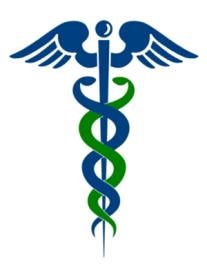As you may already know, generally, each “applicable large employer” (see our article Health Care Reform: Employers Should Prepare Now for 2015 to Avoid Penalties to determine if you are an applicable large employer) is required to file information returns with the IRS (Form 1094-C) and provide statements to its employees (Form 1095-C) about the health insurance offered by the employer. In connection with these requirements, the IRS previously published detailed instructions regarding how to complete Forms 1094-C and 1095-C (see our article What’s Next for the Affordable Care Act…Information Reporting for background information regarding these reporting requirements). In an effort to assist employers in completing these forms and to provide additional guidance, the IRS released more detailed reporting information this week in the form of Questions and Answers. The IRS also provided additional information regarding basic Affordable Care Act reporting requirements.
These materials clarified that employers are not required to complete Form 1095-C for any employee who is a part-time employee for the entire calendar year. However, an employer that sponsors a self-insured health plan in which any employee or employee’s spouse or dependent has enrolled is required to file Form 1094-C and Form 1095-C, whether or not that employer has any full-time employees and whether or not that individual is a current employee or a full-time employee. The Questions and Answers also provide much needed guidance regarding how Form 1095-C should be completed for a full-time employee who terminates employment or experiences a reduction in hours and receives an offer of COBRA continuation coverage.
In preparation for reporting on Form 1094-C and 1095-C in early 2016, applicable large employers should be thinking about the following issues, among other things:
- Has the employer identified all members of its controlled group? The employer will need to report this information on Line 21 of the Form 1094-C.
- Does the employer have a recordkeeping system in place that will let the employer easily access the data needed to complete these Forms?
- If the employer contributes to a multiemployer plan on behalf of some or all of its employees, has it coordinated reporting and information exchanges with the multiemployer plan administrator? An employer will likely need to do so in order to ensure complete and accurate Form 1095-C reporting.
- How does an employer ensure compliance with COBRA when it is using the look back method to determine full-time employee status? Where an employee changes status from full-time to part-time resulting in a qualifying event, when should the COBRA notice be provided?
- Does the employer have an administrative process in place to ensure that it promptly responds to exchange notices indicating that employees have claimed eligibility for exchange subsidies? Failure to timely respond to a notice could cause the employer to forego its opportunity to contest an employee claim that it did not offer affordable coverage.
- Employers sponsoring self-insured plans generally have to transmit to the IRS the Social Security numbers of spouses and dependents of employees covered under the plan. Is the employer able to comply with this requirement?
Note that penalties for reporting failures will not be imposed if an employer can show that it has made good faith efforts to comply with the information reporting requirements. However, no relief is provided in the case of an employer that cannot show a good faith effort to comply with the information reporting requirements or who fails to timely file an information return or furnish a statement. Thus, employers should make good faith efforts to comply with these reporting requirements even if completing the Forms seems like an impossible task.
If they have not already, employers should start thinking about these issues now as January 2016 is fast approaching.




 />i
/>i

